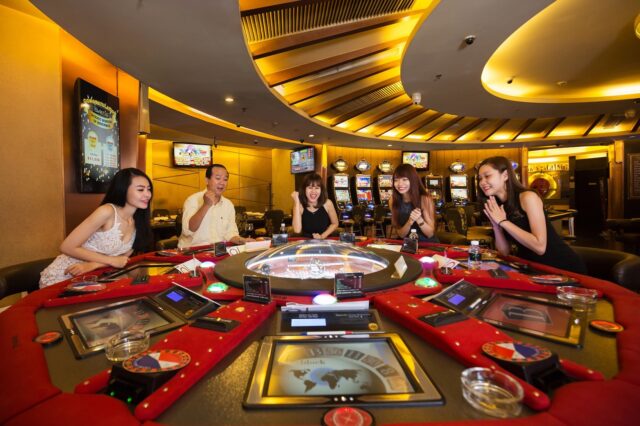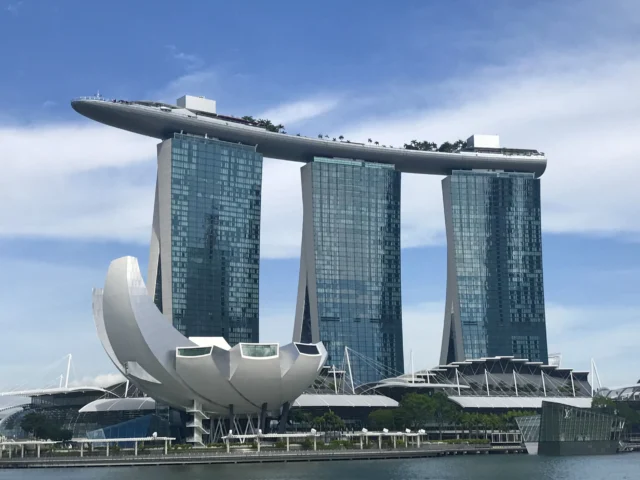
In addition to being home to a large percentage of the world’s population, Asia is also a major gambling hub. But regrettably, for these people, gambling is illegal in the vast majority of Asian nations. For the time being, many of the largest casino owners in the world consider Asia to be one of the regions with the greatest potential. Asian state governments are beginning to rethink their positions in light of the advantageous arrangements offered by casino and resort companies and the possibility of huge amounts of tax money, in addition to the pressure from the general public.
Since the COVID pandemic wiped off the once-thriving tourism business, we have seen an upsurge in the number of legitimate activities in recent years. Let’s take a look at which Asian countries are getting ready to welcome visitors and locals alike to their shiny new venues.
Vietnam

Only in 2018 did Vietnam begin the process of legalizing gambling, when it allowed sports betting and opened casinos to foreign visitors. Vietnam is quickly becoming the top destination for many international online gambling sites with millions of users participating. Among them, M88 is the bookie that has the largest number of Vietnamese players. M88 is known to be the first bookie in the online betting market and has quickly asserted its dominant position in Vietnam. For the form of offline betting, although it is generally forbidden for locals to gamble in casinos, there is a pilot program that will allow Vietnamese people to gamble in some licensed places if they can demonstrate that their monthly income is at least €370 higher than the minimum requirement. While there are numerous applicants for government permits to build further casinos, only one is open to the public at the moment, with a second in the planning stages.
Philippines
Gambling in the Philippines is regulated solely by the Cagayan Economic Zone Authority and the Philippine Amusement and Gaming Corporations (PAGCOR). The former issues licenses to online gambling sites, while the latter issues licenses to brick-and-mortar casinos.
It is legal for a casino to run its business out of the Philippines, but providing internet gambling services within the nation is prohibited. It’s ironic that foreign corporations are allowed to legally offer these services to Filipinos, but local companies aren’t. These offshore casino enterprises acquire their licenses from PAGCOR, which is an entity only meant to manage licensing for land-based activities. This further complicates the situation.
Japan
For almost a century, it has been forbidden in Japan to engage in most forms of gambling; today, only betting on some motorsports, horse races, and pachinko-slot games is permitted.
It was not until the passage of the IR Promotion Law and its follow-up, the IR Development Act, that Japan began to see a considerable uptick in the licensing of large-scale casinos. Integrated Resorts (IR) are vacation spots featuring a hotel, retail shops, dining establishments, and casinos as their primary draws for visitors.
In 2021, the freshly established Japanese government agency also announced regulations that implemented the prerequisites for constructing casinos and enforced the Specified Integrated Resort Area Development Law. Both of these events took place simultaneously. The initiative’s backer and ex-prime minister, Shinzo Abe, reportedly said he believed the measures would enhance tourism and the Japanese economy before his untimely death.
Macau
Macau is sometimes referred to as the Las Vegas of Asia due to the size and scope of its gambling market. The city is home to 41 casinos, most of which serve high rollers in the local community rather than tourists. The island successfully channels the Vegas atmosphere, complete with an abundance of neon signs and extravagantly designed hotels and casinos. Since 2015, Macau has not allowed any kind of gambling to be conducted online.
Singapore

For a significant amount of time, the only gambling alternatives available in Singapore were those that were run by state-owned companies. These included Singapore Pools, which ran games similar to lotteries, and the Singapore Turf Club, which ran horse races and sports betting.
Before the year 2005, the only way to gamble in Singapore was at one of two government-operated establishments: the Singapore Pools, which handled lotteries, and the Turf Club, which handled horse racing and sports betting. Casinos were strictly banned at the time.
In 2005, the government of Singapore legalized the operation of land-based casinos within the country, albeit they could only be found within integrated resorts and visitors were required to pay an entrance fee if they wanted to try their luck. Foreign operators can only apply for one of two available gaming licenses, and online gambling is illegal to increase control over the industry.
Malaysia
Malaysia has the same policy as Vietnam and Cambodia in that it only allows tourists to gamble at real-world venues. Gambling of any sort, whether online or in person, is prohibited for Malaysian citizens. To your relief, gambling won’t be considered criminal in Malaysia if you are living there.
Hong Kong
Hong Kong, another of China’s special administrative regions, established the Jockey Club to take advantage of its higher level of autonomy. The Jockey Club is an institution in which betting on horse races and gambling on sports are both allowed but are subject to strict regulations. Online betting on sports and gambling of any kind is completely outlawed, and access to international casinos online is both physically and virtually impossible. Other types of gambling, such as those played in land-based casinos, are only allowed to be held outside of Hong Kong’s territorial waters; hence, individuals interested in gambling frequently take ferries to Macau, which is located close to Hong Kong.
China
Gambling is restricted throughout most of mainland China, except for a couple of lotteries that are regulated by the government. Even so, this doesn’t mean that people in China can’t experience the thrills of a casino. Macau and Hong Kong, both of which are considered to be special administrative regions of China, have the right to openly deliver gaming entertainment thanks to specific legal loopholes.
Seeing a chance to make money off of Chinese visitors’ love of gambling, China’s neighbors have begun pouring significant resources into developing high-end casinos with five stars catering mainly to Chinese punters.
Conclusions
It would appear that a legalized gaming market in Asia has a way to go before it becomes a reality. But encouraging progress is being made, and plenty of states are coming to recognize the benefits of increased tax revenues and the heightened security that a regulated market would give to their residents.













